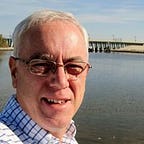Scientific Authority — Joseph Jérôme Lefrançois de Lalande
Joseph Jérôme Lefrançois de Lalande sought to establish the authority of astronomic science based on the precision of its measurements and the accuracy of its predictions. At the end of the 18th century, before the invention of electric lighting, the night sky loomed large in people’s consciousness. Lalande used his ability to explain celestial events to engage the public’s interest and establish the authority of science. Lalande was passionate about his science, and he frequently wrangled with scientific rivals and other notable figures. People were generally aware of the impending return of Halley’s Comet expected sometime during the year 1758. This generated interest in the work by Lalande and colleagues at the Paris Observatory to refine the calculations of the comet’s orbit. The new calculations added the gravitational effects of Jupiter and Saturn, and this had the effect of delaying the predicted arrival of Halley’s comet by 612 days. Lalande’s new predictions turned out to be pretty close to being right.
One incident in particular illustrates Lalandes notoriety and standing with the public as an authority on scientific matters. In 1773, Lalande was to give a public presentation at a meeting of the Academy of Sciences on recent findings from a study of comets. This presentation was duly advertised beforehand, and it apparently had generated at least a little interest. In the course of things, some incident occurred that prevented Lalande from attending the meeting and speaking as anticipated. Speculation ran rampant that the Academy was suppressing the report of Lalande’s research, which actually predicted an imminent collision and destruction of the Earth. Such was the concern that the police were called to investigate.
Lalande was a proponent of the virtue of Fraternity. He became concerned over the hyper-partisan politics that led to the period of The Terror at the end of the French Revolution. Addressing the public, Lalande declared,
“Love of country is not a patriot’s only duty. We cannot all serve our nation in the army, in the state, in the arts and sciences, but we can all come to the aid of our brothers … . It is this way that charity, added to love of country, will make us truly worthy of our revolution, our victories, and the admiration of the entire Universe.”
Jérôme de Lalande is one of the 72 scientists and engineers named on the Eiffel Tower.
